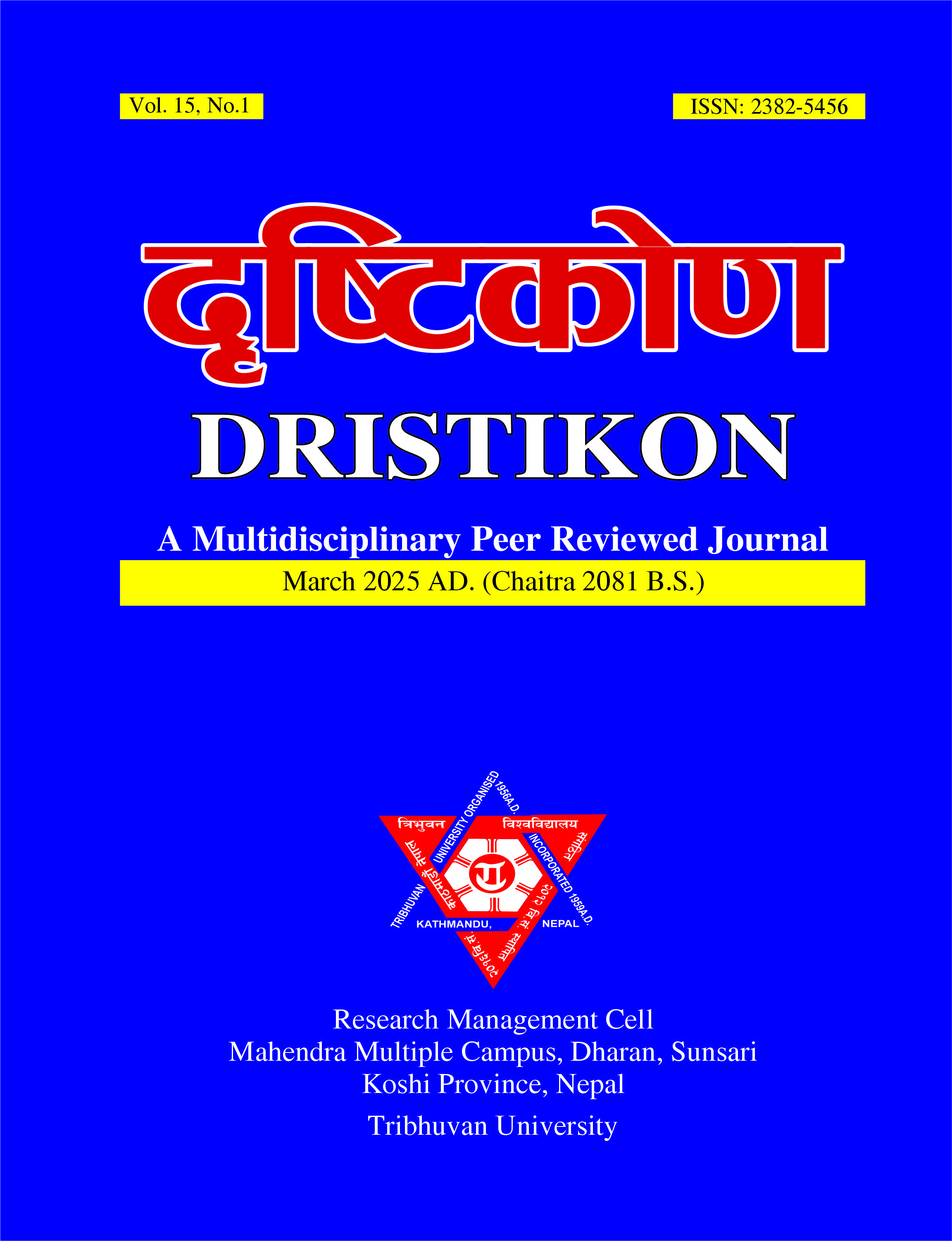Internet Addiction and Its Impact on Student Mental Health
DOI:
https://doi.org/10.3126/dristikon.v15i1.77120Keywords:
internet addiction, mental health, academic performance, digital technologyAbstract
This article examines the impact of internet addiction on student mental health through a comprehensive review of existing literature. Internet addiction, characterized by excessive and compulsive use of online platforms, has been increasingly linked to adverse mental health outcomes, including heightened anxiety, depression, and diminished academic performance. The review synthesizes findings from various studies, with a particular focus on data from Nepal and India, to provide a comparative perspective on how cultural and regional factors influence the relationship between internet use and mental health. The article highlights the pervasive nature of internet addiction and its significant effects on students’ well-being and academic success. By integrating global data with local contexts, the study underscores the need for targeted interventions and support systems to address the issue effectively. The insights derived from this review aim to inform policymakers, educators, and mental health professionals, offering a foundation for future research and practical strategies to mitigate the negative impacts of internet addiction on student mental health.
Downloads
Downloads
Published
How to Cite
Issue
Section
License
© Research Management Cell, Mahendra Multiple Campus, Dharan

